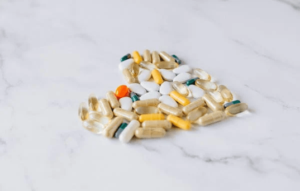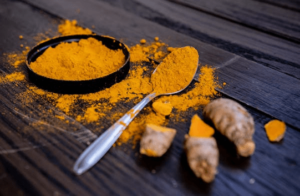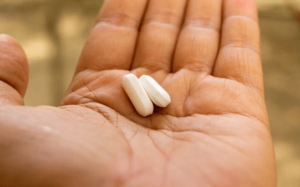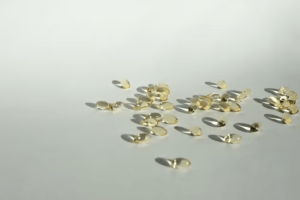
Introduction
Living with diabetes can be challenging, but it’s essential to remember that there’s hope for better health and even remission. Alongside a well-balanced diet, regular exercise, and proper medical guidance, supplements can play a vital role in managing your condition and working towards diabetic remission. If you wish to get the supplement, you may follow the link in the highlighted text.
Probiotics
Probiotics are live microorganisms that provide a range of health benefits, primarily by promoting a balanced gut microbiome. For diabetics, a healthy gut can help with improved digestion and better blood sugar control. Research suggests that an imbalanced gut microbiota may contribute to the development of type 2 diabetes. Incorporating probiotics into your daily routine can help you maintain a more diverse and balanced gut microbiome.
Turmeric
Turmeric is a bright yellow spice known for its anti-inflammatory and antioxidant properties. The active compound in turmeric, curcumin, has been studied for its potential to regulate blood sugar levels and reduce insulin resistance. Adding 500 – 2000mg of turmeric to your diet or taking a supplement can assist in managing diabetes naturally.

Reishi Mushroom
Reishi mushrooms have been used for centuries in traditional Chinese medicine for their health-promoting properties. They are known for their ability to enhance immune function and reduce inflammation. Studies suggest that reishi mushrooms may help lower blood sugar levels, making them a valuable supplement for diabetics. About 1-2g daily can be used.
Cinnamon
Cinnamon has been shown to help improve insulin sensitivity and lower blood sugar levels. You can take cinnamon supplements or add cinnamon to your meals and beverages. A half teaspoon with each meal is usually effective. You could also use a combination supplement.

Berberine
Berberine is a plant compound used in traditional medicine to manage blood sugar. 500 – 1500mg in divided doses may help reduce insulin resistance and improve glucose metabolism. Weight management, which is key for diabetics, is another benefit. A combination supplement may be even more convenient.
Alpha-Lipoic Acid (ALA)
ALA is an antioxidant that can help reduce oxidative stress in diabetic individuals and improve insulin sensitivity, which can reduce blood sugar. The dosage usually used is 300-600mg daily. It may also help with diabetic neuropathy, a great additional benefit.
Chromium
Chromium is a mineral that plays a role in carbohydrate and lipid metabolism. Some studies suggest it may help improve insulin function. Chromium picolinate is commonly used; a typical dosage might be 200 to 400 mcg daily. It may also help with weight management, a definite plus for diabetics. A combination supplement may be even more helpful.
Magnesium
Magnesium is essential for proper insulin function and 300 – 400mg daily may help improve insulin sensitivity. Many people with diabetes are magnesium deficient. Magnesium also helps with sleep, relaxation and blood pressure which are critical for diabetics.

Bitter Melon
Bitter melon is a tropical fruit traditionally used to lower blood sugar levels. 500 – 1000mg daily, in 2 – 3 doses, is recommended in supplement form.
Fenugreek
Fenugreek seeds contain soluble fibre and other compounds that may help improve blood sugar control. 500-1000mg of fenugreek supplements in 2-3 divided doses available. A combination supplement may be preferred
American Ginseng
American ginseng, in particular, has been studied for its potential to lower blood sugar levels. The recommended dosage of American ginseng for diabetes management is typically around 200 to 400 milligrams daily, taken before meals. Increased energy is an additional benefit that many experience when using this supplement.
Vitamin D
Vitamin D deficiency has been linked to an increased risk of diabetes. Up to 2000 IU can be safely taken long-term.

B-complex vitamins
B vitamins, particularly B1 (thiamine), B3 (niacin), and B6 (pyridoxine) are essential for glucose metabolism and nerve health, which is often affected by diabetes.
Omega-3 Fatty Acids
Omega-3 supplements, typically sourced from fish oil, can help reduce inflammation and improve heart health in individuals with diabetes. 1-2g daily is recommended.
CoQ10
CoQ10 is a substance naturally produced by the body and is an antioxidant as it reduces inflammation. As we age the levels in our bodies normally fall. CoQ10 can improve insulin sensitivity which is vital for diabetes remission. It may also protect the heart and other organs from the complications of diabetes. The recommended dose is 100-200mg daily.
Conclusion
Remember that supplements should complement a well-balanced diet, regular exercise, and medical care. The effectiveness of these supplements may vary from person to person, so it’s important to work closely with your healthcare provider to monitor your progress and adjust your treatment plan as needed. Additionally, the quality and purity of supplements are crucial, so choose reputable brands and products. A blood sugar-lowering supplement (or combination) with an antioxidant and a probiotic would be an effective selection.


I loved how you gave the doses of the suppliment.
On the other hand doctors are not generally favourable to patient using these suppliments. How do we counter that if the doctorcis not a natropatic doctor?